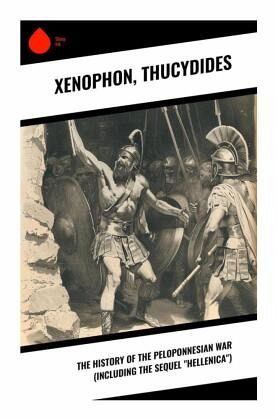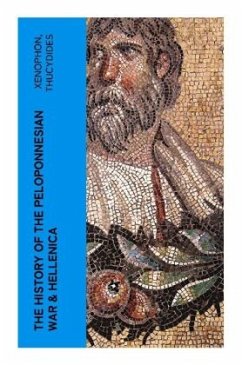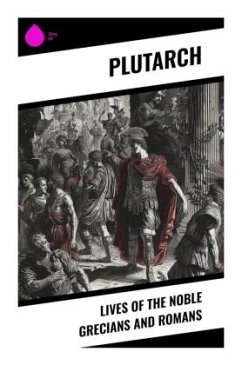
The History of the Peloponnesian War (Including the Sequel "Hellenica")
Versandkostenfrei!
Versandfertig in 6-10 Tagen
23,90 €
inkl. MwSt.
Weitere Ausgaben:

PAYBACK Punkte
0 °P sammeln!
The "History of the Peloponnesian War (Including the Sequel 'Hellenica')" compiles the riveting narratives by Xenophon and Thucydides, providing a sweeping chronicle of conflict, politics, and culture in ancient Greece. This anthology juxtaposes Thucydides' thorough account of the Peloponnesian War with Xenophon's continuation in 'Hellenica,' together offering a comprehensive exploration of Greek history and warfare. Through a range of literary styles, from Thucydides' methodical, empirical storytelling to Xenophon's engaging and occasionally dramatic prose, readers are invited to consider the...
The "History of the Peloponnesian War (Including the Sequel 'Hellenica')" compiles the riveting narratives by Xenophon and Thucydides, providing a sweeping chronicle of conflict, politics, and culture in ancient Greece. This anthology juxtaposes Thucydides' thorough account of the Peloponnesian War with Xenophon's continuation in 'Hellenica,' together offering a comprehensive exploration of Greek history and warfare. Through a range of literary styles, from Thucydides' methodical, empirical storytelling to Xenophon's engaging and occasionally dramatic prose, readers are invited to consider the diverse methods of recording history and their implications on understanding truth and perspective. This volume stands as a testament to its enduring significance in literary and historical scholarship. The dual contributions of Thucydides and Xenophon elevate this anthology beyond a mere historical record. Thucydides, often hailed as a pioneer in historical methodology, approached the Peloponnesian War with a critical eye towards the motivations and political maneuvers of its participants. In contrast, Xenophon, a student of Socrates, brings his philosophical insights to the sequel 'Hellenica,' offering readers insights into the aftermath of the war and the shifting dynamics of Greek society. Collectively, these authors not only document significant events but also engage with the cultural and intellectual currents of their time, aligning this collection with the classical Greek commitment to inquiry and debate. This anthology is an invaluable resource for readers seeking to immerse themselves in a multifaceted historical dialogue. Encouraging a deep engagement with ancient insights, it offers an educational journey through varied perspectives on a pivotal era. The juxtaposition of Thucydides' and Xenophon's narratives invites readers to appreciate not only the breadth of historical analysis but also the interplay between historiography and literature. Scholars andenthusiasts alike will find this collection both enlightening and thought-provoking, as it fosters a richer understanding of the complexities of ancient Greek history.













